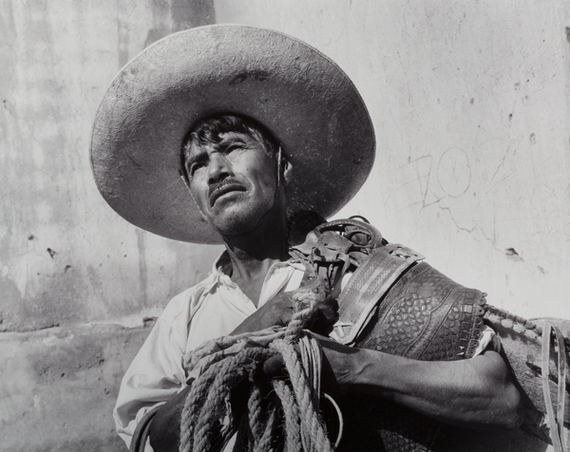"Mi Querido Mexico (My Beloved Mexico): The Photographs of Manuel Carrillo," curated for the Museum of Latin American Art by its President and CEO Stuart A. Ashman, looks like a village. A small Mexican village. Its themes, though, are global.
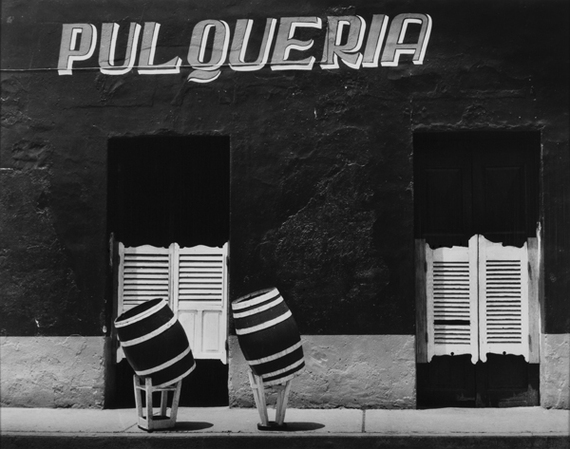
Drunken Barrels-Pulqueria (Toluca) / Barriles borrachos-Pulqueria (Toluca), 1970
Gelatin-Silver Print
The space it inhabits is modest. The black-and-white photographs are about the size of a sheet of paper. They all have the same black frame. For all we know, the subjects could be members of the same family. Each piece is carefully composed. There's nothing extraneous, just as in the lives of these people. Carrillo isolates each subject, the better to focus on physiognomy, expressions, and textures. Everything blends together. The texture of skin, the texture of clothes, and the texture of landscape.
Each piece brims with unrehearsed moments. Its tone is slower than slow. People and animals go about their business. No one and no thing are in a hurry. (There is a party next door, though. An exhibition of magical realism work culled from the Museum's permanent collection to honor of the passing Gabriel Garcia Marquez.)
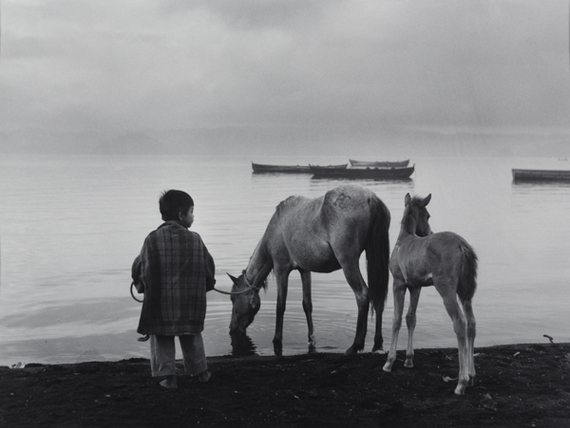
Boy Watering Horses, Veracruz / Niño dando de beber a los caballos, Veracruz, 1956
Gelatin-Silver Print
One image is funny. Two tilted barrels sit in front of an agave bar, posed as if drunk and 86ed onto the sidewalk. One image is sad. A dog sits on the grave of its master. Three images are profound. The shadow of a cross bends at an unnatural angle. A young boy hesitates before he goes into a church. An old woman walks in the direction opposite a set of stairs. All of the images are sincere and intimate.
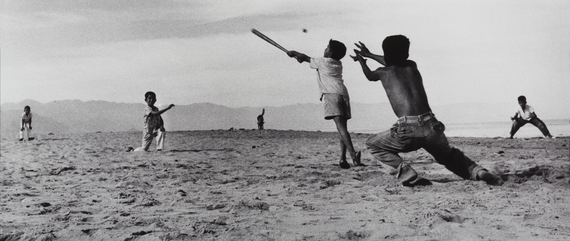
Dog Joins the Games at 2nd Base / Perro se une al juego en la segunda base, 1970
Gelatin-Silver Print
The show begins with mundane situations. Carrillo ritualizes these simple acts. He makes them monumental. A mother breastfeeding her child out in the open becomes a metaphor for everywoman. A man selling rope to support his family is everyman. The boys playing baseball, a young girl sitting up against a wall, they represent the future.
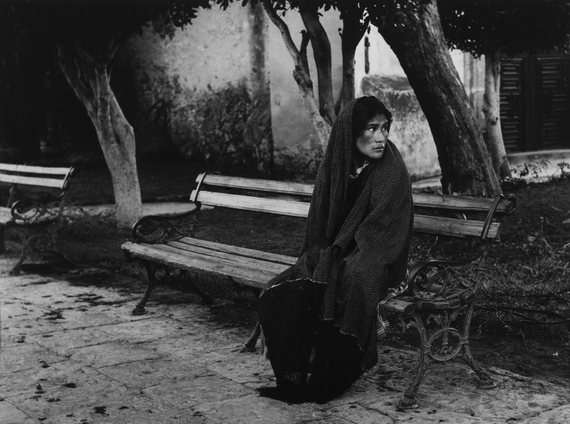
Woman on Park Bench (San Miguel) / Mujer en el banco del parque (San Miguel), 1970
Gelatin-Silver Print
The work is clean, simple, uncluttered. They're more like windows. On the wall outside the gallery is an Edward Steichen quote: "A portrait is not made in the camera but on either side of it." That's what makes this minimal show so monumental. Carrillo sees and then seizes the basics of what he photographs. Nothing more, nothing less. Daily gains and losses, joys and despairs. Subjects are what they appear to be. Nothing is lost in translation. Nothing at all.
Carrillo was born in Mexico City in 1906. At the age of 49, he took up photography, joining the Club Fotografico de Mexico and the Photographic Society of America. In 1960 he had his first international show at the Chicago Public Library. Since then, he has shown all over the world, including the US, England, China, Hong Kong, Rumania, and France. He died in 1989. He donated his archive of over 10,000 prints, negatives and slides to the University of Texas at El Paso Library.
The exhibition runs until November 30. Museum hours are 11am - 5pm, Wednesday, Thursday, Saturday, and Sunday, 11am - 9pm, Friday. Admission is $6 - $9, with free admission on Sunday. The Museum is located at 628 Alamitos Avenue, Long Beach CA 90802. For more information call (562) 437-1689 or visit www.molaa.org.

